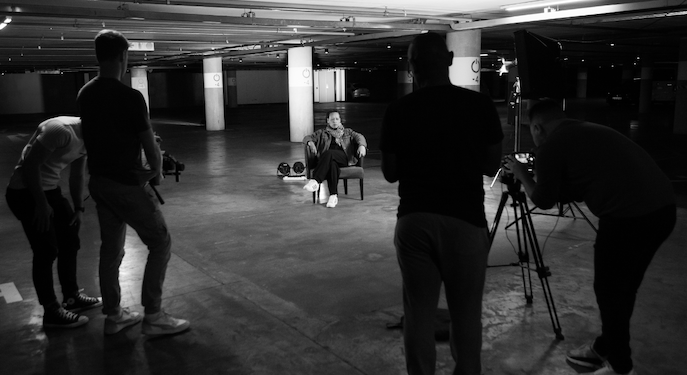South Africans know oversupply. Everyone’s got a braai – not all of them worth lighting the fire for. Everyone’s got a rugby hot take – not all worth hearing. And now, it feels like every other week there’s a new documentary dropping into our feeds, each one branded “unmissable.”
The reflex is understandable: roll your eyes, sigh, “Eish, not another one.”
But here’s the thing. The problem isn’t abundance. The problem is that too many of these films have forgotten the one thing that makes a documentary matter.
Not access, not polish – but perspective.
I’ve watched hours of raw footage collapse under the weight of good intentions. I’ve sat in boardrooms where executives mistake glossy visuals for depth, and more recently, as a juror for the International Emmy Awards, I’ve judged projects with all the right credentials (big subjects, big names, big budgets) that still evaporate. Forgettable as last week’s news ticker.
Because subject alone cannot carry a film. Perspective can. And when South African filmmakers get this right, the results are undeniable.
Take School Ties* (M-Net). On paper, it’s a study of our education system. But what makes it cut is the texture: a pause, an unspoken tension, the way perspectives refract until the subject is no longer just “schools.” Suddenly it’s about belonging, secrecy, and the quiet violence of power. You don’t just watch it; you feel implicated.
Or Chasing the Sun 2* (SuperSport), the Springbok saga’s sequel. It could’ve been a chest-thumping montage of tries and tackles. Instead, it digs. The crack in a coach’s voice. A jersey stitched with history, pride, and fracture. The film refuses to let rugby be “just a game.” It becomes a vessel for identity, trauma, resilience.
Both films prove my point: access is not intimacy. Information is not insight. Empathy cannot be manufactured in post-production; it’s earned by sitting inside the mess, letting contradiction and nuance do the heavy lifting.
As I recently re-discovered; perspective is not a stylistic flourish. It is the spine. Without it, even the grandest subject shrivels. With it, the smallest gesture (a look, a silence, a smirk) can shift culture.
I know this not only from watching but from making. In Young, Gifted & Queer, my latest documentary, the truth wasn’t in the polished sit-down interviews or sweeping cultural arguments. It was in a hand squeeze before coming out to family. In a laugh that cut through the heaviness. Those details carried more cultural weight than any statistic. They revealed not only what was happening, but what it feels like to live it.
And this is where South African storytellers have an edge, and it seems my fellow International Emmys juror tends to agree. We are a nation of jagged histories, layered identities, unresolved griefs. Our best documentaries don’t chase international trends – they tell stories from the marrow outwards. They don’t flatten. They cut to the bone.
So no, there aren’t “too many” documentaries. There are too many without teeth.

* School Ties is a 2025 International Emmy finalist for Best Documentary, while Chasing the Sun 2 is nominated in the Sports Documentary category. Winners will be announced on November 24, 2025, at the ceremony in New York.
Renaldo Schwarp is a journalist, filmmaker, and senior content strategist. He has created two award-winning documentaries, including his latest Young, Gifted & Queer currently streaming on Showmax. Schwarp was also recently selected as a juror for the 2025 International Emmy® Awards. His work spans storytelling across TV, digital, and film, with a focus on culture and identity.














